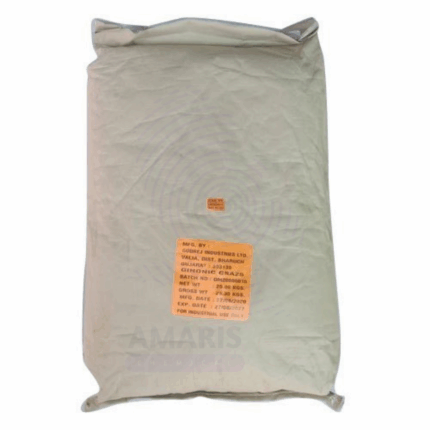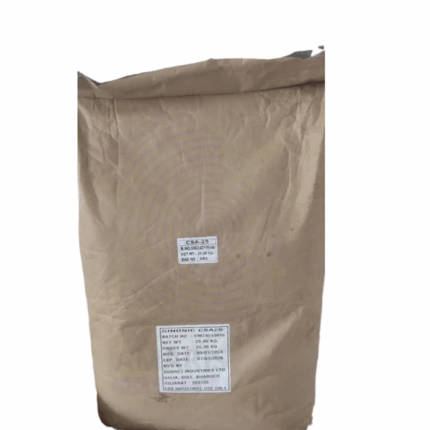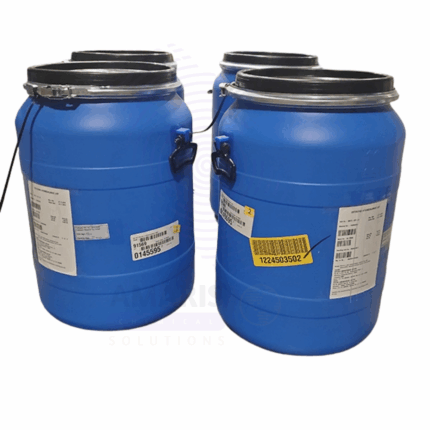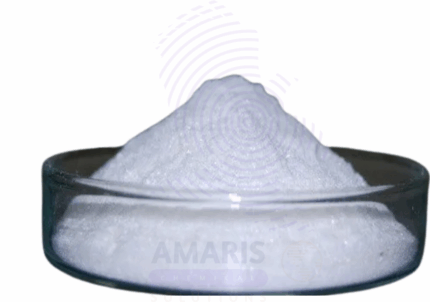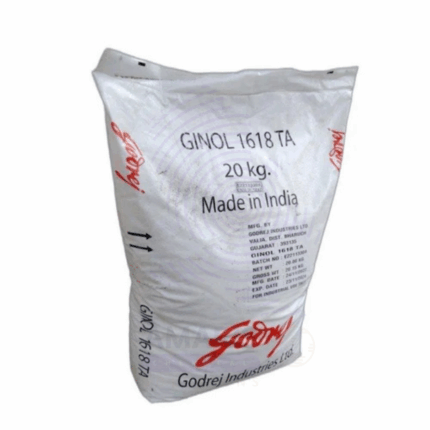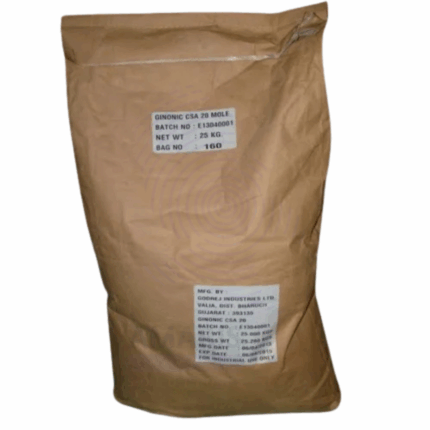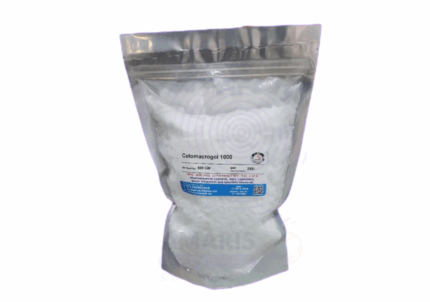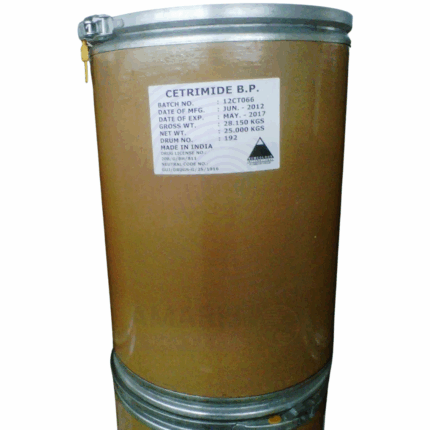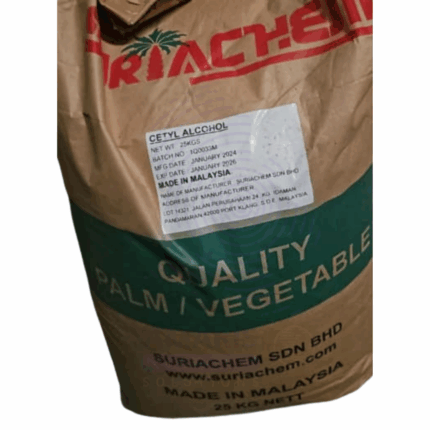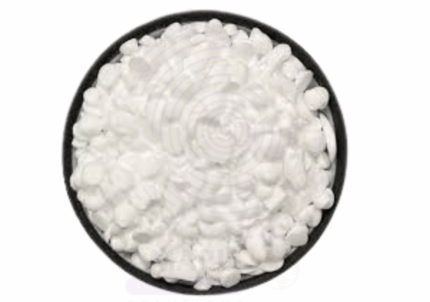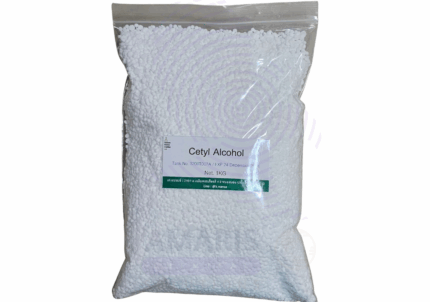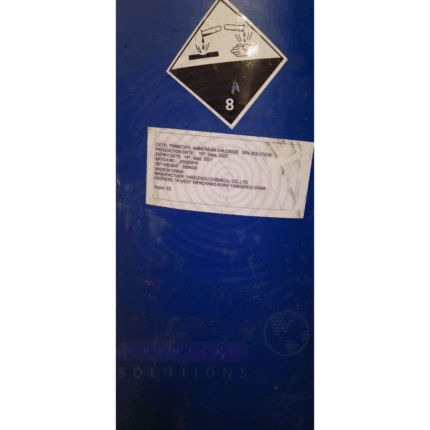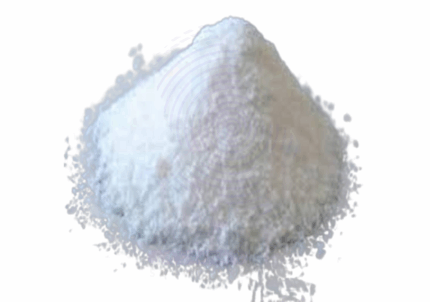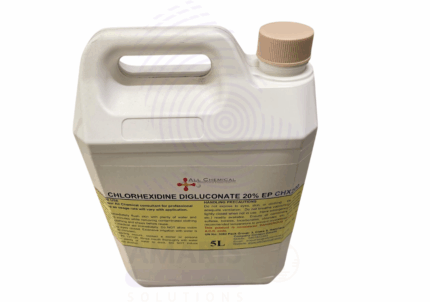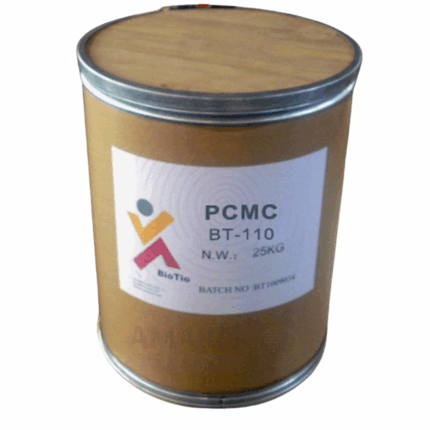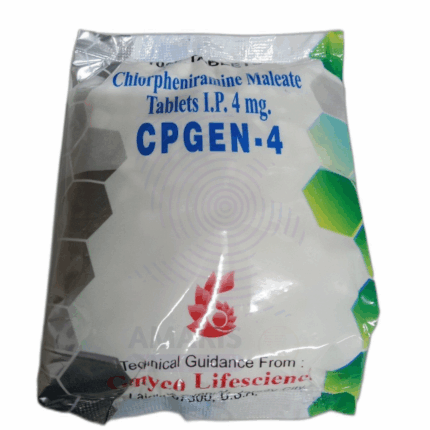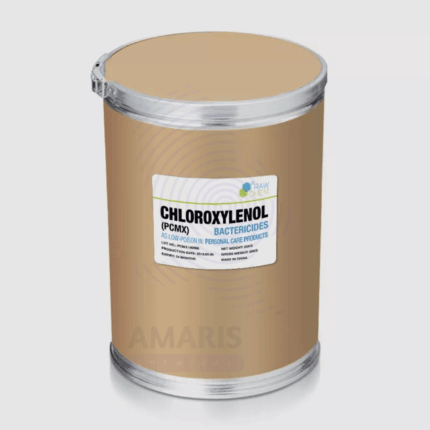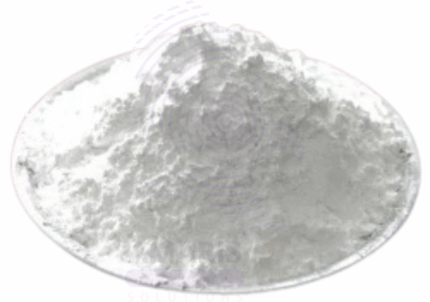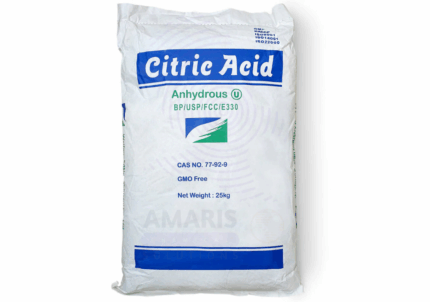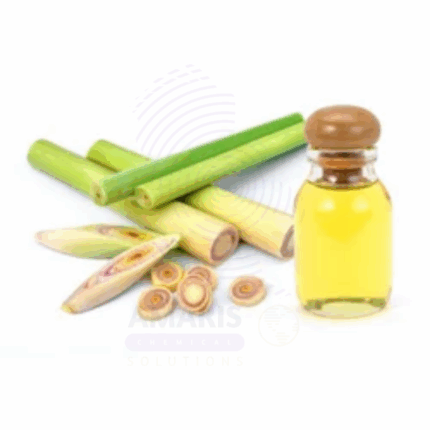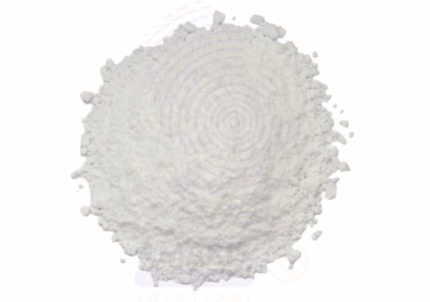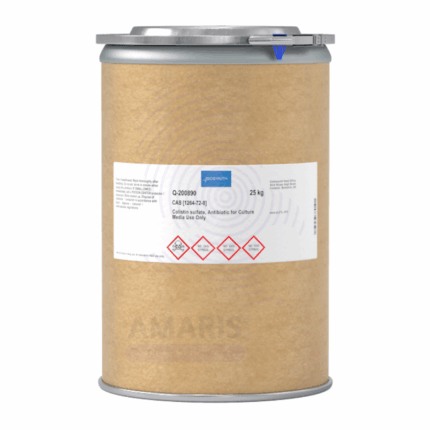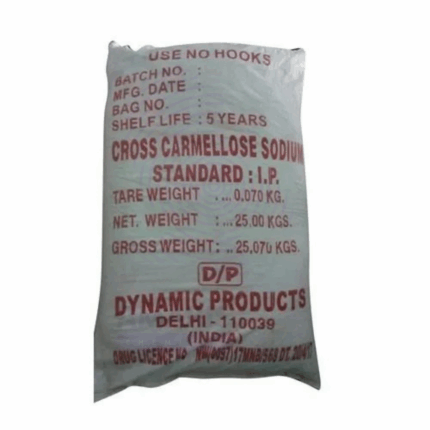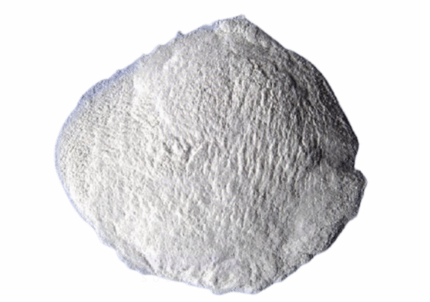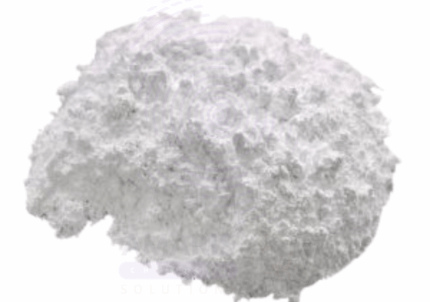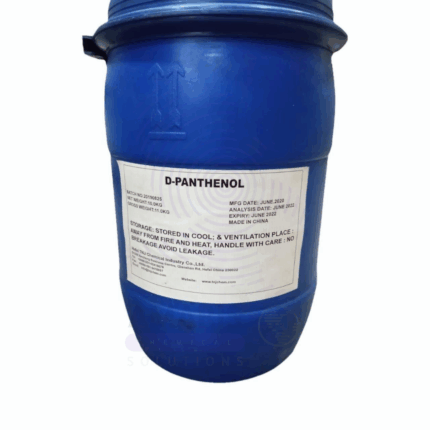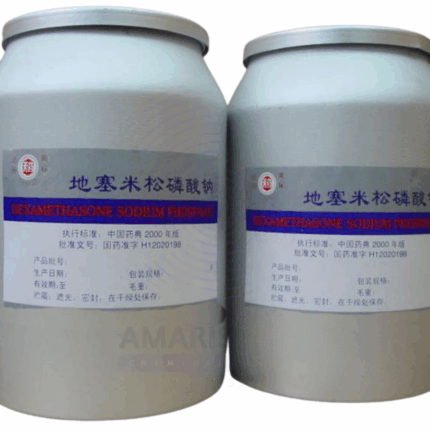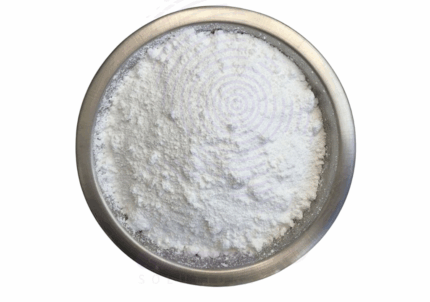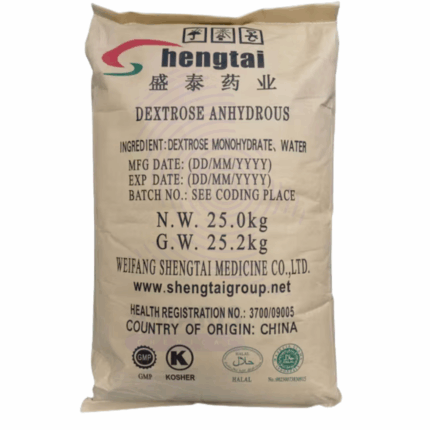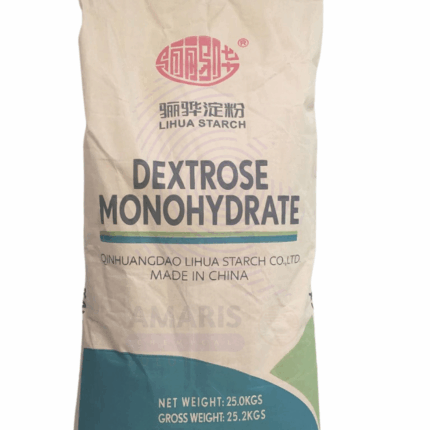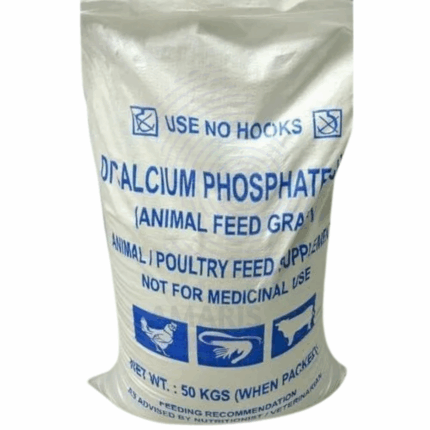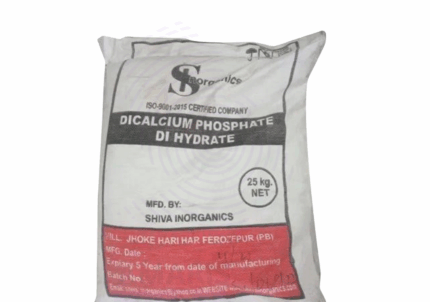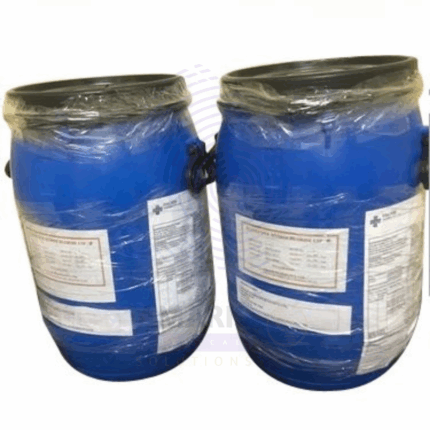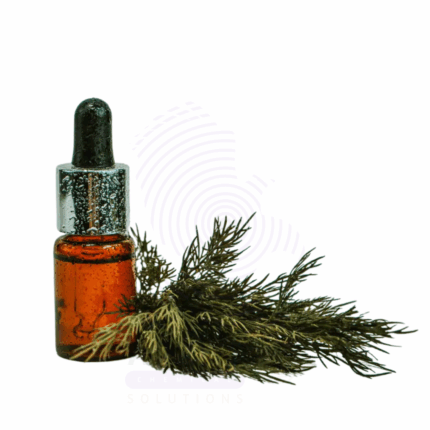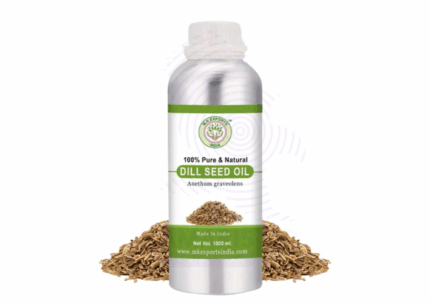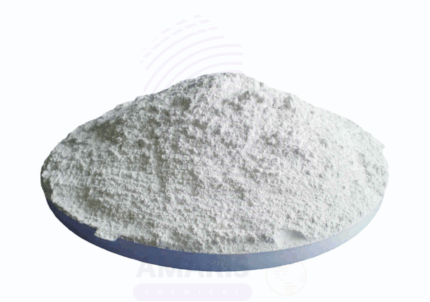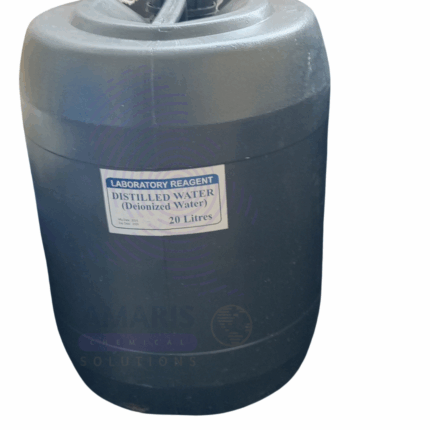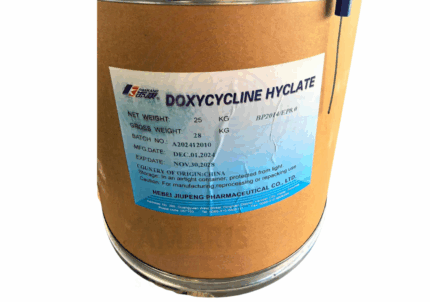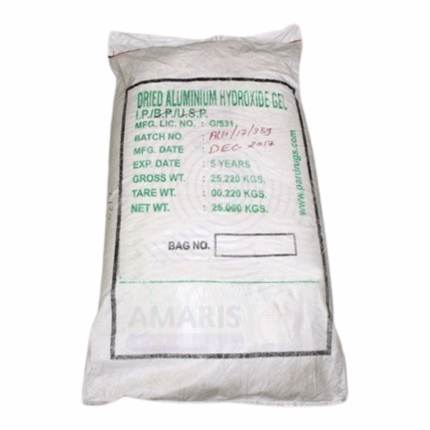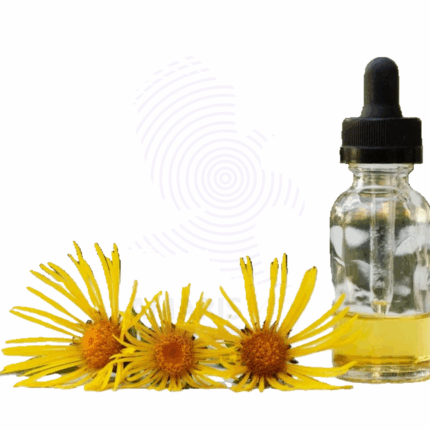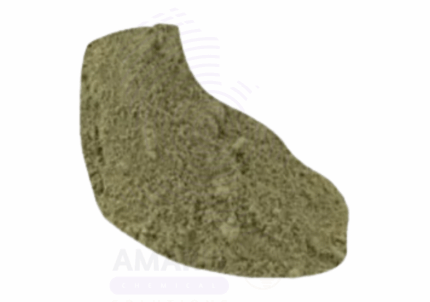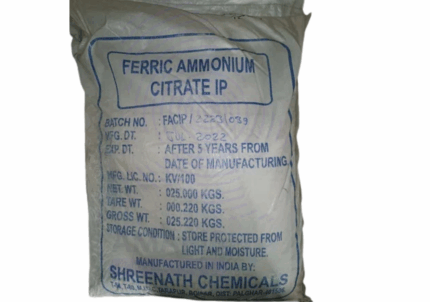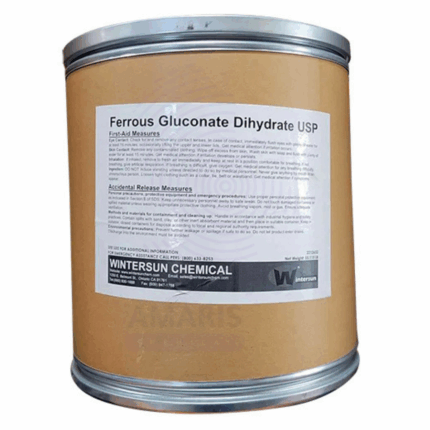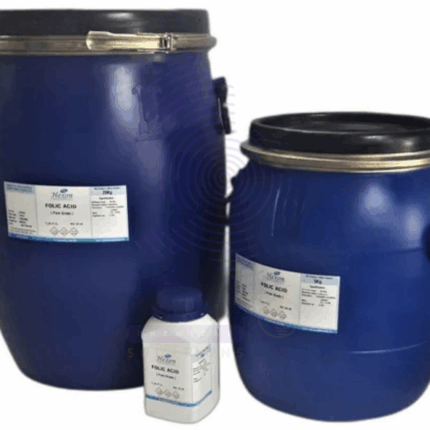
Ceteareth 20 Ginonic
Ceteareth 20 Ginonic CSA 20 is a nonionic surfactant and emulsifier derived from the ethoxylation of cetearyl alcohol, incorporating approximately 20 ethylene oxide units per molecule. It appears as a white to off-white waxy solid or viscous liquid, depending on temperature and formulation. This emulsifier is widely used in cosmetic, pharmaceutical, and industrial formulations for its excellent ability to stabilize oil-in-water emulsions, improve texture, and enhance the sensory properties of finished products. Its high hydrophilic-lipophilic balance (HLB) makes it especially effective in forming stable emulsions and solubilizing lipophilic ingredients in aqueous phases. Ceteareth 20 is valued for its mildness, broad compatibility, and multifunctional performance.
Ceteareth 25 Ginonic
Ceteareth 25 Ginonic CSA 25 is a nonionic surfactant and emulsifier derived from the ethoxylation of cetearyl alcohol, incorporating approximately 20 ethylene oxide units per molecule. It appears as a white to off-white waxy solid or viscous liquid, depending on temperature and formulation. This emulsifier is widely used in cosmetic, pharmaceutical, and industrial formulations for its excellent ability to stabilize oil-in-water emulsions, improve texture, and enhance the sensory properties of finished products. Its high hydrophilic-lipophilic balance (HLB) makes it especially effective in forming stable emulsions and solubilizing lipophilic ingredients in aqueous phases. Ceteareth 20 is valued for its mildness, broad compatibility, and multifunctional performance.
Cetirizine Dihydrochloride
Cetirizine Dihydrochloride is a second-generation antihistamine widely used to relieve allergy symptoms such as hay fever, urticaria (hives), and other allergic conditions. It is the dihydrochloride salt form of cetirizine, presenting as a white to off-white crystalline powder that is odorless or nearly odorless and slightly bitter in taste. Cetirizine Dihydrochloride acts as a selective antagonist of peripheral H1 histamine receptors, preventing the effects of histamine and thereby reducing allergic symptoms without causing significant sedation. It is a commonly prescribed active pharmaceutical ingredient (API) in oral tablets, syrups, and capsules.
Cetirizine Hydrochloride
Cetirizine Hydrochloride is a widely used second-generation antihistamine effective for treating allergic conditions such as allergic rhinitis, chronic urticaria, and other allergy symptoms. It is the hydrochloride salt form of cetirizine, existing as a white to off-white crystalline powder with a slightly bitter taste. Cetirizine HCl acts by selectively blocking peripheral H1 histamine receptors, thereby reducing allergic symptoms without significant sedation or central nervous system depression. It is commonly formulated into tablets, syrups, and capsules as an active pharmaceutical ingredient.
Ceto Stearyl Alcohol
Ceto Stearyl Alcohol 1618TA is a high-quality fatty alcohol blend primarily composed of cetyl (C16) and stearyl (C18) alcohols. It appears as a white, waxy solid or flakes with a mild fatty odor. This blend is widely used as an emollient, thickener, and co-emulsifier in cosmetic, pharmaceutical, and industrial formulations. Ceto Stearyl Alcohol 1618TA offers excellent lubricity, thickening, and stabilizing properties, enhancing the texture, consistency, and moisturizing characteristics of creams, lotions, and hair care products. It serves as a skin conditioning agent and contributes to the structural integrity of emulsions.
Cetomacrogel 1000BP
Cetomacrogel 1000BP is a high molecular weight polyethylene glycol (PEG) derivative, typically used as a thickening agent, emulsifier, and stabilizer in pharmaceutical and cosmetic formulations. It appears as a white to off-white, waxy solid or flakes with a neutral odor. Known for its excellent water solubility and compatibility with various ingredients, Cetomacrogel 1000BP enhances texture, viscosity, and stability in creams, ointments, and gels. It serves as a hydrophilic vehicle base in topical and oral pharmaceutical preparations and improves product spreadability and skin feel.
Cetrimide Powder
Cetrimide Powder is a high-purity quaternary ammonium compound widely used for its antiseptic, disinfectant, and surfactant properties. It is a cationic surfactant derived from cetyltrimethylammonium bromide and appears as a white to off-white crystalline powder with a slight characteristic odor. Known for its excellent antimicrobial efficacy against bacteria and fungi, cetrimide is frequently incorporated in pharmaceutical, personal care, and industrial formulations. It acts as a bactericidal agent, detergent, and emulsifier, providing effective cleaning and disinfecting action.
Cetyl Alcohol
Cetyl Alcohol, also known as 1-Hexadecanol or Palmityl Alcohol, is a fatty alcohol derived primarily from natural sources such as palm oil and coconut oil. It appears as a waxy, white to pale yellow solid with a faint fatty odor. Cetyl Alcohol is widely used in cosmetic, pharmaceutical, and industrial formulations due to its emollient, emulsifying, thickening, and stabilizing properties. It helps improve texture, consistency, and moisturizing effects in personal care products. Cetyl Alcohol is compatible with many ingredients, making it a versatile multifunctional ingredient.
Cetyl Alcohol Flakes
Cetyl Alcohol Flakes is a high-purity fatty alcohol derived mainly from natural sources such as palm oil and coconut oil. Presented as white to off-white waxy flakes, this product contains at least 98% pure cetyl alcohol, ensuring consistent performance and quality. It is valued for its excellent emollient, thickening, and emulsifying properties and is widely used in personal care, pharmaceutical, and industrial formulations. The flake form facilitates easy handling, melting, and dosing in manufacturing processes. Cetyl Alcohol 98% Flakes contributes to the texture, stability, and moisturizing properties of various formulations, providing a non-greasy, smooth finish.
Cetyl Stearyl Alcohol (CSA)
Cetyl Stearyl Alcohol (CSA), also known as Cetearyl Alcohol, is a blended fatty alcohol consisting primarily of cetyl (C16) and stearyl (C18) alcohols. It appears as white to pale yellow waxy flakes or pellets with a mild fatty odor. CSA is widely used in cosmetics, pharmaceuticals, and personal care products as an emollient, thickener, and co-emulsifier. It enhances texture, improves stability, and provides a smooth, velvety skin feel in formulations. Being a non-ionic surfactant, it also aids in stabilizing oil-in-water emulsions and is favored for its gentle nature on the skin and hair.
Cetyl Trimethyl Ammonium Chloride
Cetyl Trimethyl Ammonium Chloride (CTAC) is a cationic surfactant and quaternary ammonium compound characterized by a long hydrophobic cetyl (C16) alkyl chain and a positively charged ammonium head group. It appears as a white to pale yellow powder or flakes, soluble in water, and exhibits strong surface-active properties. CTAC is widely used in cosmetics, personal care, and industrial applications for its excellent conditioning, antistatic, emulsifying, and disinfectant capabilities. It functions primarily as a fabric softener, hair conditioner, and antimicrobial agent.
Chloramphenicol Palmitate Micronised
Chloramphenicol Palmitate Micronised is a micronized, lipophilic ester derivative of chloramphenicol, designed for improved solubility and bioavailability compared to the parent drug. It appears as a fine, white to off-white powder with enhanced surface area due to micronization. This antibiotic is widely used for oral formulations, particularly pediatric suspensions, due to its palatability and controlled release properties. Chloramphenicol Palmitate exhibits broad-spectrum antibacterial activity against both Gram-positive and Gram-negative bacteria. Its ester form offers better stability and reduced bitterness, making it a preferred choice in pharmaceutical preparations.
Chlorhexidine Digluconate
Chlorhexidine Digluconate is a concentrated aqueous solution of chlorhexidine salt (digluconate form), a potent broad-spectrum antimicrobial agent. It is a clear to slightly yellow viscous liquid with a mild characteristic odor. This antiseptic and disinfectant is widely used in medical, personal care, and industrial applications for its ability to effectively kill bacteria, fungi, and some viruses by disrupting microbial cell membranes. Chlorhexidine Digluconate is valued for its residual antimicrobial activity, low toxicity, and compatibility with various formulations.
Chlorobutanol BP
Chlorobutanol BP (also known as 1,1,1-Trichloro-2-methyl-2-propanol) is a white crystalline solid or powder, with a slight camphor-like odor and a bitter taste. It is a multifunctional preservative, anesthetic, and antimicrobial agent commonly used in pharmaceutical, cosmetic, and personal care products. Chlorobutanol exhibits bacteriostatic and fungistatic properties, making it effective in preventing microbial contamination in aqueous formulations. It also possesses mild local anesthetic effects, frequently used in ophthalmic and injectable preparations as a preservative and stabilizer.
Chlorocresol BP
Chlorocresol BP, also known as PCMC (Para-Chlorometa-Cresol), is a white to off-white crystalline powder with a characteristic phenolic odor. It is a chlorinated phenol derivative widely used as a broad-spectrum antimicrobial preservative. It exhibits effective bactericidal and fungicidal activity, making it a preferred preservative in pharmaceutical, cosmetic, and personal care products. Chlorocresol is valued for its stability, solubility in aqueous and alcoholic systems, and compatibility with various formulation types. It helps inhibit microbial growth, thereby enhancing product shelf life and safety.
Chloropheniramine Maleate
Chloropheniramine Maleate is a first-generation alkylamine antihistamine used primarily to relieve allergy symptoms by blocking H1 histamine receptors. It appears as a white or off-white crystalline powder, freely soluble in water and alcohol. Known for rapid onset and moderate duration of action, it’s widely formulated in pharmaceuticals. It also exhibits mild anticholinergic and sedative effects.
Chlorpheniramine Maleate
Chlorpheniramine Maleate is a first-generation alkylamine antihistamine used primarily to relieve allergy symptoms by blocking H1 histamine receptors. It appears as a white or off-white crystalline powder, freely soluble in water and alcohol. Known for rapid onset and moderate duration of action, it’s widely formulated in pharmaceuticals. It also exhibits mild anticholinergic and sedative effects.
Citric Acid Anhydrous
Citric Acid Anhydrous is a white, crystalline organic acid widely used across food, pharmaceutical, cosmetic, and industrial sectors. It is the anhydrous form of citric acid, meaning it contains no water molecules in its crystal lattice, resulting in higher purity and more concentrated acidic properties compared to its monohydrate form. Derived from natural sources like citrus fruits or produced via microbial fermentation, citric acid anhydrous is valued for its sour taste, excellent chelating ability, and buffering capacity. It serves as a natural preservative, pH adjuster, antioxidant synergist, and cleaning agent, making it a versatile ingredient in many formulations.
Citronella Oil
Citronella Oil is an essential oil obtained from the leaves and stems of various species of Cymbopogon grass, most commonly Cymbopogon nardus and Cymbopogon winterianus. It is extracted via steam distillation and is known for its fresh, lemony aroma. Citronella Oil is widely recognized for its insect-repelling properties, as well as its use in perfumery, aromatherapy, and natural cleaning products.
Rich in citronellal, geraniol, and citronellol, this oil is highly valued for its antimicrobial, antifungal, and deodorizing effects. It plays a significant role in personal care formulations, environmental hygiene products, and therapeutic applications.
Clotrimazole BP2000
Clotrimazole BP2000 is a broad-spectrum antifungal agent belonging to the imidazole class. It appears as a white to off-white crystalline powder that is practically insoluble in water but soluble in organic solvents like ethanol and chloroform. Clotrimazole is widely used in pharmaceutical formulations for the treatment of fungal infections affecting the skin, mucous membranes, and nails. Its mechanism involves inhibition of ergosterol synthesis, a vital component of fungal cell membranes, leading to increased cell permeability and fungal cell death. BP2000 indicates compliance with British Pharmacopoeia standards ensuring high purity and consistent quality suitable for pharmaceutical applications.
Colistin Sulphate BP
Colistin Sulphate BP is an antibiotic belonging to the polymyxin class, derived from the bacterium Paenibacillus polymyxa. It is a white to pale yellow powder, soluble in water, and used primarily for its potent bactericidal activity against Gram-negative bacteria, including multidrug-resistant strains. Colistin Sulphate BP is used in both human and veterinary medicine, often as a last-resort treatment for serious infections caused by multidrug-resistant Pseudomonas, Acinetobacter, and Klebsiella species. Due to its efficacy and narrow therapeutic index, its use is carefully monitored. The “BP” denotes compliance with the British Pharmacopoeia standards.
Cross Carmellose Sodium BP
Cross Carmellose Sodium BP (also known as Croscarmellose Sodium or CCS) is a cross-linked sodium carboxymethyl cellulose polymer. It is a highly efficient, super-disintegrant commonly used in pharmaceutical tablet and capsule formulations. This white to off-white, odorless, and tasteless powder exhibits excellent swelling properties and rapid water uptake, which facilitates fast tablet disintegration and improves drug bioavailability. It is chemically stable, non-toxic, and compatible with a wide range of active pharmaceutical ingredients (APIs).
Cyclopentolate HCL
Cyclopentolate Hydrochloride (HCL) is a synthetic anticholinergic agent used primarily in ophthalmology. It appears as a white to off-white crystalline powder, soluble in water, with a slightly bitter taste. Cyclopentolate HCL works by temporarily paralyzing the muscles of the eye’s ciliary body and iris, causing pupil dilation (mydriasis) and paralysis of accommodation (cycloplegia). It is commonly formulated into eye drops for diagnostic procedures and therapeutic applications involving the eye.
Cyproheptadine HCL
Cyproheptadine Hydrochloride (HCL) is a synthetic first-generation antihistamine with additional anticholinergic and serotonin antagonist properties. It appears as a white to off-white crystalline powder, soluble in water, with a bitter taste. Cyproheptadine HCL is widely used in medical and veterinary fields for its potent antihistaminic effects, appetite stimulation, and treatment of allergic conditions. It blocks H1 histamine receptors, helping to reduce symptoms of allergic reactions, and is also used for various off-label applications including migraine prophylaxis and serotonin syndrome management.
D-Panthenol USP
D-Panthenol USP, also known as Provitamin B5, is the dextrorotatory isomer of panthenol and is biologically active. It is a water-soluble, viscous, clear liquid with a slightly sweet odor and is widely used in pharmaceutical, cosmetic, personal care, and nutraceutical applications. D-Panthenol is the alcohol analog of pantothenic acid (Vitamin B5) and is converted into Vitamin B5 in the skin and body, where it plays a vital role in cellular metabolism and tissue repair. Its moisturizing, anti-inflammatory, and healing properties make it highly valuable across industries.
Dexamethasone Sodium Phosphate
Dexamethasone Sodium Phosphate is a water-soluble, synthetic corticosteroid ester of dexamethasone, widely used for its potent anti-inflammatory and immunosuppressive properties. It is the sodium phosphate ester form, enabling rapid dissolution and absorption for injectable and topical pharmaceutical formulations. This compound is extensively used in medical treatments to reduce inflammation, allergic reactions, and immune system overactivity. Its efficacy in modulating gene expression makes it valuable in treating a range of conditions including autoimmune diseases, allergic reactions, and certain cancers. Dexamethasone Sodium Phosphate is prized for its fast onset of action, high potency, and versatility in various dosage forms such as injections, ophthalmic solutions, and topical preparations.
Dextromethorphan Hydrobromide
Dextromethorphan Hydrobromide (Dextromethorphan HBr) is a synthetic derivative of morphinan and a widely used antitussive agent that suppresses cough reflex. It acts centrally on the cough center in the medulla without causing typical opioid side effects such as analgesia or dependence. It is commonly formulated in syrups, tablets, lozenges, and combination cold and flu medications. Due to its rapid onset, good oral bioavailability, and well-tolerated safety profile, Dextromethorphan HBr is a preferred active pharmaceutical ingredient (API) in cough suppressant products worldwide.
Dextrose Anhydrous BP Injectable
Dextrose Anhydrous BP Injectable is a sterile, highly purified crystalline form of glucose that serves as a critical energy source in intravenous therapy. It is widely used in parenteral nutrition, rehydration, and hypoglycemia management. The anhydrous form contains no water, allowing precise control of concentration in injectable solutions. Meeting British Pharmacopoeia (BP) standards, it ensures pharmaceutical-grade purity and sterility, suitable for direct injection or as a component in compounded IV fluids. It provides readily available carbohydrates metabolized to supply energy, regulate osmolarity, and maintain fluid-electrolyte balance in clinical care.
Dextrose Monohydrate
Dextrose Monohydrate is a crystalline form of glucose containing one molecule of water (monohydrate). It is a primary carbohydrate source widely used in pharmaceutical, food, and clinical nutrition applications. It provides readily available energy, serves as a sweetening agent, and acts as an osmotic agent in formulations. Dextrose Monohydrate meets pharmacopoeial standards (such as BP, USP) ensuring high purity, consistency, and safety for use in medical and food-grade products. Its solubility and stable crystalline form make it suitable for intravenous fluids, oral rehydration solutions, and food industry applications.
Dicalcium Phosphate
Dicalcium Phosphate (DCP) is an inorganic compound commonly used as a dietary supplement, food additive, and a key raw material in pharmaceuticals and animal nutrition. It appears as a white crystalline powder or granules and provides a highly bioavailable source of calcium and phosphorus, essential minerals for bone health, metabolic functions, and overall growth. DCP is widely used in the feed industry, pharmaceutical manufacturing, food processing, and various industrial applications, appreciated for its purity, stability, and nutritional value.
Dicalcium Phosphate Dihydrate
Dicalcium Phosphate Dihydrate (DCP Dihydrate) is an odorless, white crystalline powder or granule composed of calcium and phosphate in a hydrated form. It is widely used in the pharmaceutical, food, animal feed, and industrial sectors. It serves as a calcium and phosphorus supplement, excipient, and abrasive agent, valued for its stability, bioavailability, and neutral taste. DCP Dihydrate complies with various pharmacopeial standards (e.g., USP, BP, FCC) depending on the grade.
Diclofenac Sodium BP
Diclofenac Sodium is a nonsteroidal anti-inflammatory drug (NSAID) widely used for its potent analgesic, anti-inflammatory, and antipyretic properties. It is the sodium salt form of diclofenac, providing enhanced solubility and rapid absorption. Diclofenac Sodium BP (British Pharmacopoeia standard) ensures pharmaceutical-grade purity and compliance with stringent quality standards. It is commonly formulated in oral tablets, topical gels, injections, and ophthalmic preparations.
Dicyclomine Hydrochloride
Dicyclomine Hydrochloride is an anticholinergic and antispasmodic agent used primarily to relieve smooth muscle spasms in the gastrointestinal tract. It works by blocking muscarinic receptors, thereby reducing muscle contractions and spasms, which helps alleviate symptoms of irritable bowel syndrome (IBS) and other functional bowel disorders. It is commonly available in oral tablets, capsules, and injectable formulations.
Dill Herb Oil
Dill Herb Oil is a steam-distilled essential oil extracted from the fresh or partially dried herbaceous parts of the Anethum graveolens plant, commonly known as dill. Unlike dill seed oil, which is distilled from the seeds, dill herb oil has a lighter, fresher, and slightly grassy aroma with a faint sweetness and subtle spicy undertones. It is valued for its carminative, digestive, antispasmodic, antimicrobial, and calming properties.
This oil is traditionally used in digestive remedies, culinary formulations, aromatherapy blends, and topical preparations. It’s a common ingredient in natural health products, skincare, and child-friendly wellness products due to its mildness and effectiveness. Dill herb oil is also employed in food and beverage applications and niche perfumery for its green, aromatic character.
Dill Seed Oil Terpeneless
Dill Seed Oil Terpeneless is a refined essential oil obtained by steam distillation of the seeds of Anethum graveolens, with terpenes removed to reduce its sharpness and volatility. It has a mild, sweet, herbaceous aroma with faint spicy undertones. This oil is prized for its improved stability, softer fragrance profile, and enhanced suitability in cosmetic, pharmaceutical, and cleaning applications. Traditionally used for digestive support and antimicrobial properties, dill seed oil terpeneless is incorporated in natural personal care products, aromatherapy, and household formulations.
Diloxanide Furoate
Diloxanide Furoate is an orally administered antiprotozoal agent used primarily for the treatment of amoebiasis. It is a furan-based derivative that acts as a luminal amoebicide, effectively targeting Entamoeba histolytica cysts and trophozoites within the intestinal lumen. This compound is well-regarded for its efficacy in eradicating asymptomatic cyst carriers and as a follow-up treatment after systemic amoebicidal therapy. Diloxanide Furoate has good oral bioavailability and a favorable safety profile.
Diphenhydramine HCL BP
Diphenhydramine HCL BP is a first-generation antihistamine with potent anticholinergic, sedative, and antiemetic properties. It is commonly used to relieve symptoms associated with allergies, hay fever, the common cold, and motion sickness. Diphenhydramine HCL is a white crystalline powder, highly soluble in water, making it suitable for oral, topical, and injectable pharmaceutical formulations. Due to its ability to cross the blood-brain barrier, it causes sedation and is often used as a sleep aid and for managing Parkinson’s disease symptoms.
Distilled Water
Distilled Water is purified water that has been processed through distillation, a method involving evaporation and subsequent condensation to remove impurities, salts, minerals, and organic matter. This results in ultra-pure, clear, odorless, and tasteless water free of dissolved solids and contaminants. Distilled water is non-conductive, neutral in pH under ideal storage, and chemically stable. It is widely used across pharmaceutical, laboratory, medical, industrial, and consumer applications where high water purity is critical.
Doxycycline Hyclate BP
Doxycycline Hyclate BP is a broad-spectrum, semisynthetic tetracycline-class antibiotic available as the hemihydrate salt form of doxycycline. It is widely used in pharmaceutical formulations due to its high bioavailability, broad antibacterial activity, and favorable pharmacokinetic profile. The compound exhibits bacteriostatic action by inhibiting protein synthesis in susceptible bacteria, making it effective against a wide range of Gram-positive and Gram-negative organisms as well as atypical pathogens. It is typically supplied as a fine, white to off-white crystalline powder soluble in water and suitable for oral and parenteral dosage forms.
Dried Aluminium Hyroxide Gel
Dried Aluminium Hyroxide Gel is a highly purified, finely dispersed aluminum hydroxide product obtained by drying aluminum hydroxide gels. It is a white, amorphous, odorless powder with excellent adsorptive and neutralizing properties. This material serves as an effective antacid, a flame retardant filler, and an adsorbent in pharmaceutical, cosmetic, and industrial applications. Its gel form ensures high surface area and porosity, making it highly reactive and efficient in acid neutralization and catalysis. Dried Aluminum Hydroxide Gel is widely used for its buffering capacity and chemical inertness in various formulations.
Dropper Teat
A Dropper Teat is a soft, flexible rubber or silicone component designed to fit onto a dropper bottle or pipette, facilitating controlled dispensing of liquids in drops. Commonly used in pharmaceutical, laboratory, and infant care applications, the teat provides a safe and precise way to transfer small amounts of liquid. Its pliable material allows easy squeezing to draw up and release fluids dropwise, ensuring accuracy and minimizing waste or contamination. Dropper teats are essential for eyedrops, medicines, feeding bottles, and various chemical dispensing needs.
Dropper with Teats
Dropper with Teats is a combined liquid dispensing tool consisting of a transparent glass or plastic tube fitted with a flexible rubber or silicone teat (bulb) at the top. This integrated design enables precise suction and controlled dropwise release of liquids, widely used in pharmaceutical, laboratory, and infant care settings. The teat provides comfortable squeezing to draw up liquid into the dropper tube and release it accurately in small volumes, making it ideal for delicate dosing, sample handling, and medicinal applications. These droppers are available in various sizes and materials to suit diverse fluid types and usage scenarios.
Elecampane Oil
Elecampane Oil is an essential oil extracted by steam distillation from the roots of Inula helenium. It has a warm, sweet, balsamic, and slightly camphoraceous aroma. Traditionally valued for its expectorant, antimicrobial, and anti-inflammatory properties, Elecampane Oil is used in respiratory therapies, digestive health products, and topical applications. It is prized in aromatherapy and herbal medicine for supporting lung and skin health.
Ellagic Acid
Ellagic Acid is a naturally occurring polyphenolic compound found in numerous fruits, nuts, and vegetables such as pomegranates, strawberries, raspberries, walnuts, and cranberries. It is a potent antioxidant known for its ability to scavenge free radicals and chelate metal ions. Due to its significant anti-inflammatory, anti-carcinogenic, and anti-viral properties, Ellagic Acid has gained extensive interest in pharmaceutical, nutraceutical, cosmetic, and food industries. It appears as a yellow to light brown crystalline powder, insoluble in water but soluble in organic solvents like ethanol and DMSO.
Enrofloxacin Hydrochloride
Enrofloxacin Hydrochloride is a broad-spectrum fluoroquinolone antibiotic used primarily in veterinary medicine. It is the hydrochloride salt of enrofloxacin, offering enhanced solubility and bioavailability. Enrofloxacin inhibits bacterial DNA gyrase and topoisomerase IV, disrupting DNA replication in Gram-negative and Gram-positive organisms as well as some Mycoplasma species. It is available as a white to off-white crystalline powder, used in injectable, oral, and topical formulations designed for livestock, companion animals, and aquatic species.
Ferric Ammonium Citrate
Ferric Ammonium Citrate is a dark green to black crystalline or granular inorganic compound composed of iron, ammonium ions, and citrate ions. It is a complex salt of citric acid with ferric iron (Fe³⁺) and ammonium. This compound is highly soluble in water, forming a greenish solution, and is widely utilized as a source of iron in various chemical, pharmaceutical, photographic, and food applications. It acts as a mild oxidizing agent and an iron supplement, valued for its bioavailability and ease of incorporation into formulations. Ferric Ammonium Citrate is typically available in different formulations distinguished by their water and ammonium content, such as green and brown types.
Ferrous Gluconate
Ferrous Gluconate is an iron salt of gluconic acid, appearing as a pale greenish-blue or green crystalline powder or granules. It is widely used as a nutritional iron supplement and food additive due to its good bioavailability and relatively low toxicity compared to other iron salts. Ferrous Gluconate is water-soluble, providing a stable source of ferrous iron (Fe²⁺) that is easily absorbed in the gastrointestinal tract. This compound is commonly employed in pharmaceuticals, food fortification, and medical formulations to treat or prevent iron deficiency anemia. It is also used as a reducing agent and color stabilizer in various industrial applications.
Folic Acid
Folic Acid, also known as Vitamin B9 or pteroylmonoglutamic acid, is a water-soluble vitamin essential for numerous physiological processes including DNA synthesis, repair, and methylation, as well as amino acid metabolism. It appears as a yellow to orange-yellow crystalline powder, odorless or with a faint characteristic odor. Folic Acid is vital for cell division and growth, making it critical during pregnancy and periods of rapid growth. It is widely used in the pharmaceutical, nutraceutical, food fortification, and cosmetic industries due to its role in preventing folate deficiency anemia, neural tube defects in newborns, and supporting overall cellular health.


 Preservatives(food)
Preservatives(food) Flavor Enhancers
Flavor Enhancers Acidulants
Acidulants Sweeteners
Sweeteners Antioxidants
Antioxidants Colorants(food)
Colorants(food) Nutraceutical Ingredients (food)
Nutraceutical Ingredients (food) Nutrient Supplements
Nutrient Supplements Emulsifiers
Emulsifiers
 Collectors
Collectors Dust Suppressants
Dust Suppressants Explosives and Blasting Agents
Explosives and Blasting Agents Flocculants and Coagulants
Flocculants and Coagulants Frothers
Frothers Leaching Agents
Leaching Agents pH Modifiers
pH Modifiers Precious Metal Extraction Agents
Precious Metal Extraction Agents
 Antioxidants(plastic)
Antioxidants(plastic) Colorants (Pigments, Dyes)
Colorants (Pigments, Dyes) Fillers and Reinforcements
Fillers and Reinforcements Flame Retardants
Flame Retardants Monomers
Monomers Plasticizers
Plasticizers Polymerization Initiators
Polymerization Initiators Stabilizers (UV, Heat)
Stabilizers (UV, Heat)
 Antifoaming Agents
Antifoaming Agents Chelating Agents
Chelating Agents Coagulants and Flocculants
Coagulants and Flocculants Corrosion Inhibitors
Corrosion Inhibitors Disinfectants and Biocides
Disinfectants and Biocides Oxidizing Agents
Oxidizing Agents pH Adjusters
pH Adjusters Scale Inhibitors( water)
Scale Inhibitors( water)
 Antioxidants(cosmetic)
Antioxidants(cosmetic) Emollients
Emollients Fragrances and Essential Oils
Fragrances and Essential Oils Humectants
Humectants Preservatives
Preservatives Surfactants(cosmetic)
Surfactants(cosmetic) Thickeners
Thickeners UV Filters
UV Filters
 Fertilizers
Fertilizers Soil Conditioners
Soil Conditioners Plant Growth Regulators
Plant Growth Regulators Animal Feed Additives
Animal Feed Additives Biostimulants
Biostimulants Pesticides (Herbicides, Insecticides, Fungicides)
Pesticides (Herbicides, Insecticides, Fungicides)
 Active Pharmaceutical Ingredients (APIs)
Active Pharmaceutical Ingredients (APIs) Excipients
Excipients Solvents(pharmaceutical)
Solvents(pharmaceutical) Antibiotics
Antibiotics Antiseptics and Disinfectants
Antiseptics and Disinfectants Vaccine Adjuvants
Vaccine Adjuvants Nutraceutical Ingredients (pharmaceutical)
Nutraceutical Ingredients (pharmaceutical) Analgesics & Antipyretics
Analgesics & Antipyretics
 Analytical Reagents
Analytical Reagents Solvents(lab)
Solvents(lab) Chromatography Chemicals
Chromatography Chemicals Spectroscopy Reagents
Spectroscopy Reagents microbiology-and-cell-culture-reagents
microbiology-and-cell-culture-reagents Molecular Biology Reagents
Molecular Biology Reagents Biochemical Reagents
Biochemical Reagents Inorganic and Organic Standards
Inorganic and Organic Standards Laboratory Safety Chemicals
Laboratory Safety Chemicals Specialty Laboratory Chemicals(Special Laboratory Equipment)
Specialty Laboratory Chemicals(Special Laboratory Equipment)
 Demulsifiers
Demulsifiers Hydraulic Fracturing Fluids
Hydraulic Fracturing Fluids Scale Inhibitors(oil)
Scale Inhibitors(oil) Surfactants(oil)
Surfactants(oil) Drilling Fluids
Drilling Fluids
 Dyes and Pigments
Dyes and Pigments Bleaching Agents
Bleaching Agents Softening Agents
Softening Agents Finishing Agents
Finishing Agents Antistatic Agents
Antistatic Agents
 Admixtures
Admixtures Waterproofing Agents
Waterproofing Agents Sealants and Adhesives
Sealants and Adhesives Curing Compounds
Curing Compounds Concrete Repair Chemicals
Concrete Repair Chemicals Anti-Corrosion Coatings
Anti-Corrosion Coatings
 Surfactants(cleaning)
Surfactants(cleaning) Builders
Builders Enzymes
Enzymes Solvents (Cleaning)
Solvents (Cleaning) Fragrances
Fragrances
 Electronic Chemicals
Electronic Chemicals Catalysts
Catalysts Lubricants
Lubricants Photographic Chemicals
Photographic Chemicals Refrigerants
Refrigerants Automotive chemicals
Automotive chemicals Pyrotechnic Chemicals
Pyrotechnic Chemicals
 Biodegradable Surfactants
Biodegradable Surfactants Bio-based Solvents
Bio-based Solvents Renewable Polymers
Renewable Polymers Carbon Capture Chemicals
Carbon Capture Chemicals Wastewater Treatment Chemicals
Wastewater Treatment Chemicals
 Pigments
Pigments Solvents(paint)
Solvents(paint) Specialty Coatings
Specialty Coatings Binders/Resins
Binders/Resins Additives
Additives Driers
Driers Anti-Corrosion Agents
Anti-Corrosion Agents Functional Coatings
Functional Coatings Application-Specific Coatings
Application-Specific Coatings
 Fresh Herbs
Fresh Herbs Ground Spices
Ground Spices Whole Spices
Whole Spices Spice Blends
Spice Blends Dried Herbs
Dried Herbs
 Leavening Agents
Leavening Agents Dough Conditioners
Dough Conditioners Flour Treatments
Flour Treatments Fat Replacers
Fat Replacers Decoratives
Decoratives Preservatives(baking)
Preservatives(baking)
 Plasticizers & Softeners
Plasticizers & Softeners Reinforcing Agents
Reinforcing Agents Adhesion Promoters
Adhesion Promoters Vulcanizing Agents
Vulcanizing Agents Antidegradants
Antidegradants Blowing Agents
Blowing Agents Fillers & Extenders
Fillers & Extenders Accelerators & Retarders
Accelerators & Retarders

















